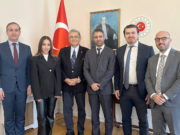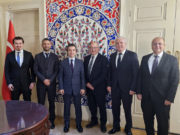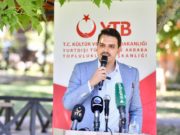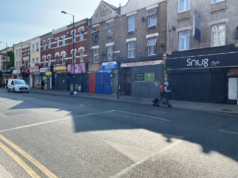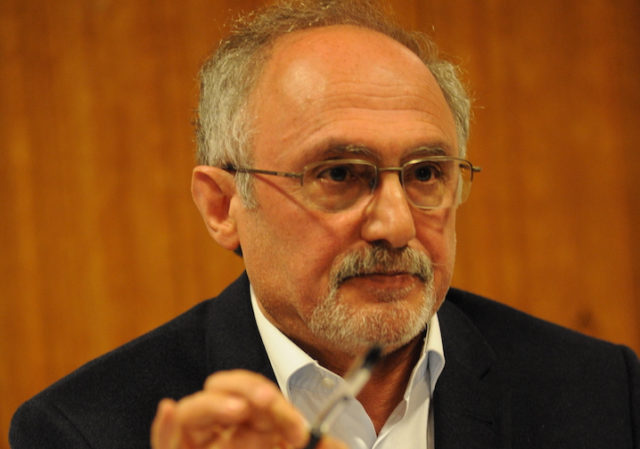
Two very different systems of government in Turkey are at stake as the country votes in a constitutional referendum next month, said activist and campaigner Erdoğan Aydın
An Ottoman-style monarchy is at stake in Turkey as the country votes in an executive presidency referendum next month, campaigner and activist Erdoğan Aydın said on Monday.
There were two very different outcomes at stake as a result of the referendum, he told an audience in the Houses of Parliament.
He argued that one outcome would effectively re-establish an Ottoman-style monarchy in the country, whereas the other result would bring Turkey into a more democratic condition.
He was speaking at an event organised by the Centre for Turkey Studies and chaired by Sara Whyatt, a researcher and campaigner on freedom of expression, formally of PEN International and Amnesty International and former English-language editor of Gezi Resistance Magazine.
Ms Whyatt opened the session with details on the upcoming referendum, including the proposed changes to the Turkish constitution.
She outlined arguments from both sides of the referendum, stating that Yes voters supported these changes based on the view that they would bring stability to the country and economy and that No voters were concerned about these changes placing too much power in the hands of one person.
In his main remarks, Mr Aydın argued that Turkey’s governing Justice and Development (AK) Party – which backs a Yes vote – had received vastly more coverage in the media compared to the opposition Republican People’s Party (CHP), which supports the No campaign.
Unbalanced coverage
The AK Party had received 300 hours of coverage in the past week, he said, while the CHP had 300 hours and the pro-Kurdish Peoples’ Democracy Party (HDP) had none.
Mr Aydin added that pro-No supporters are being labelled terrorists by pro-Yes pundits, and stated that the pro-Yes campaigners were presenting their own campaign as a War of Independence, and using religious symbols including crosses and crescents in order to portray themselves as fighting against crusaders.
He also pointed to the concerns raised about the proposed constitutional reforms by the Venice Commission, which is the advisory body to the Council of Europe on constitutional matters.
The commission said that the proposed changes – which including permitted the president to appoint and dismiss high ranking administrative and judiciary officials, allowing him to appoint 12 out of 15 Constitutional Court Judges, arbitrarily dissolve parliament and effectively legislate by decree – amounted to an “autocratic” system.
Deep concerns
He concluded by stating that he and others were deeply concerned about the effect this system would have on Turkish democracy, and how it could undermine secularism, equality and human rights, Turkey-EU relations and stability in the Middle East – particularly in Syria.
He summarised his case by arguing that the constitutional changes were a great disappointment, and dismissed them as backsliding beyond what he saw as the shortcomings of Turkey’s 1982 constitution.
A No vote, he said, could help steer Turkey onto a more democratic path.
Freedom of expression concerns
Also speaking was Tom Brake, the Liberal Democrat MP for Carshalton and Wallington, who hosted the event in parliament.
He opened the event by discussing the importance of providing voters in referendums both for Turkey and the previous Brexit referendum in the UK with adequate, non-biased information in order for them to make their decisions.
Regarding Turkey, Mr Brake expressed concern at the state of freedom of expression in the country.


